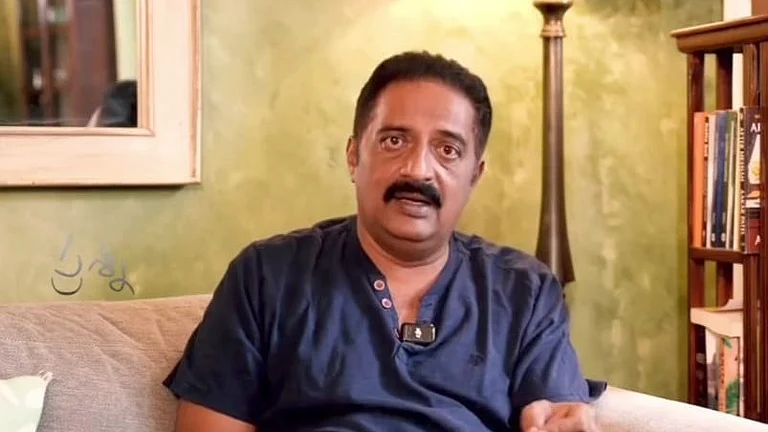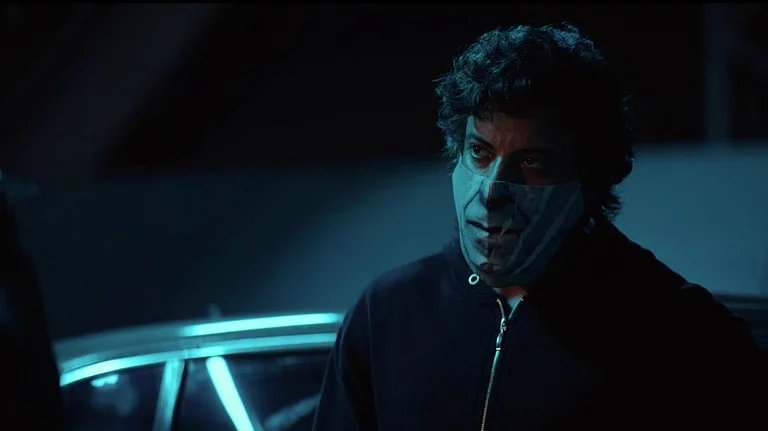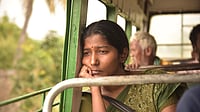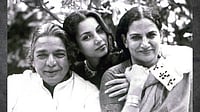
The film is set in Chandigarh in 2001.
It follows the friendship among three boys and their relationships with their fathers.
It reveals how grown men are warped by their own social conditioning.
Ghich Pich is a coming-of-age story that leaves you crestfallen, considering the possibility of what the movie could have been. The skeletal structure of brilliance is there, the exposition has momentum, the conflict is carefully developed, and there’s also investment in the character development. It is a movie I was ready to love, but for the ending. Ankur Singla’s debut feature straddles its way to a coveted climactic moment—replete with the angst of the unresolved—and then decides to drop the action, resolving it almost with bathetic haste; as if the film flinched under its own emotional weight.
Set in Chandigarh in 2001, the film revolves around a triumvirate friendship among Anurag (Aryan Singh Rana), Gurpreet (Kabir Nanda), and Gaurav (Shhivam Kakar), exploring the relationships these three boys share with their fathers. Anurag’s father (played by the ever-so-brilliant Satyajit Sharma) is a diluted echo of the authoritarian father figure from Udaan (2010), obsessed with discipline and routine. In fact, if one is really looking, traces of Udaan can be found in the nooks and crannies of Ghich Pich—sons stealing their father’s car, wilting under the pressure of tough love masquerading as discipline, rebelling against trauma passed down like an heirloom…the parallels are abundant.
Anurag’s father returns home from the office with a bottle of liquor and draws circles on the table, trying to inspire his son to “jump orbits” of success and reach the centre—a hypothetical place of privilege, where people possess enough capital to outrun their mediocrity. He often looks at Anurag with eyes bulbous with anger, supposedly to motivate him for the prissy board exams, and more broadly for life. In moments of remorse, he stands before a mirror and confesses to his wife that he must act the (assumed) part, despite not wanting to be the diabolical father he is to his son. He plays the tyrant, hoping to provide his son the escape velocity required to be released from the gravitational pull of being middle-class.
On the other hand, Anurag’s friend Gurpreet—a Sikh boy—falls in love with Ashima and becomes convinced that it is his appearance that prevents her from seeing him as her boyfriend. He plunges headlong into conflict with his father, a deeply religious man, and fixates on the belief that cutting his hair short and improving his appearance will somehow upgrade his life. For a while, his mother serves as a go-between in this strained dynamic, until Gurpreet confronts his father directly. The third story arc follows Gaurav, who unwittingly discovers something about his father that shatters his understanding of the world, forcing him to question everything he has known and believed growing up.
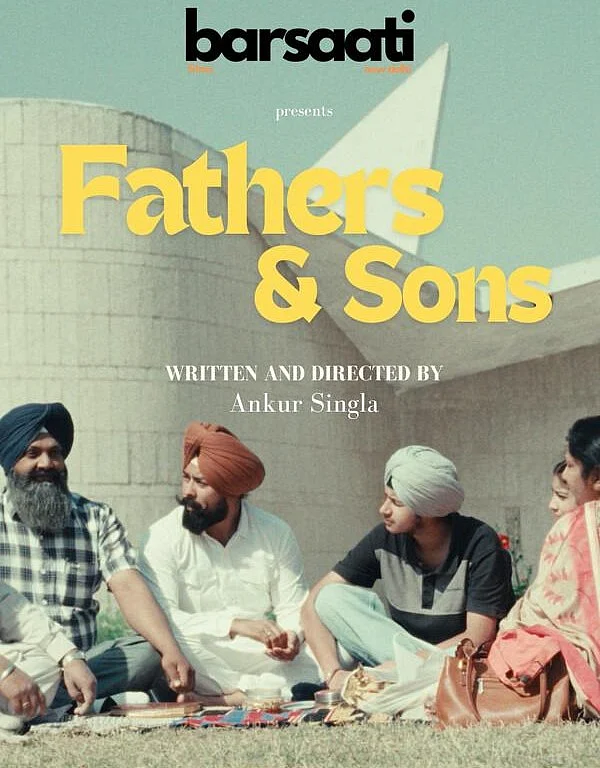
Where Ghich Pich parts ways with Udaan is in its tenderness toward the fathers. Singla zooms in on the cracked carapace of their masculinities, revealing grown men warped by their own social conditioning. Anurag’s father helplessly simmers with the rage of a man who knows he’s ordinary and can’t bear it. Gurpreet’s father moves through life in mute servitude, caring about the Gurdwara committee, bowing to his elder brother to make decisions he himself cannot. Gaurav’s father cowers under the pressure of performing a sexual identity that was not his to begin with. They fail because they have been failed. But they fail despite their efforts, not without them—reminding one that sometimes, effort isn’t enough, and damage gets handed down regardless of the best-laid plans.
Communication gap with parents is a well-worn trope in coming-of-age films, and Ghich Pich is no exception. Too much gets lost in translation between the purported, the passed on, and the perceived. A son breaks up with his girlfriend, rises at the crack of dawn to jump orbits, hoping for his father’s acknowledgment. A father (Nishan Cheema) tries hopelessly to convince his son to take pride in his religious and cultural identity, but grapples for words. Another, played by the late Nitesh Pandey, pleads with his son for understanding and forgiveness. Wishing and meaning well do not automatically qualify parents as well-wishers. Good intentions do not always translate into good outcomes—and the fathers learn this lesson the hard way.
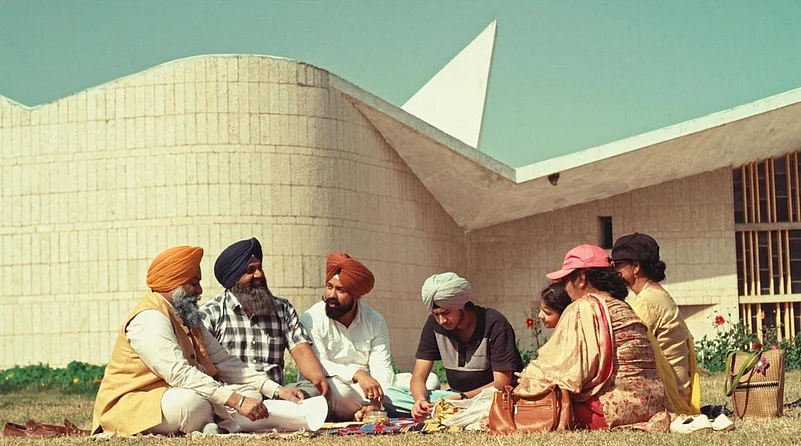
One of the things that stands out about this indie film is the makers’ commitment to stay loyal to the time and city in which the story is set. Cyber cafes, VCD players, and even a Monsoon Wedding (2001) poster lurking in the background as the boys dance to the rhythms of simpler times—all reflect the filmmakers’ grit in getting the period details right. The generation of lovers exchanging missed calls, filling out slam book pages, finding each other’s phone numbers in telephone directories, and even writing letters and passing them on in secret made me feel pleasantly nostalgic for the childhood that was mine in 2001. Gurpreet’s fascination with looking like Chandrachur Singh might take one back to a time when “Mere Khayalon Ki Malika” from Josh (2000) was just a year old, and we were all smitten with Singh’s smiling face. Coming to the performances, Kabir Nanda’s Gurpreet and Aryan Singh Rana’s Anurag are easy to root for. Geeta Agarwal Sharma’s Ritu Arora, though limited by screen time, is brilliant.
The possibilities with this film were limitless, until the climax. The way it chooses to resolve its tension is where it bites off more than it can chew. The means don’t justify the end when, instead of remaining neutral in the story arc of a father haranguing his son daily to catapult him into the orbit of success, the narrative takes a side—that of the parent. It shrugs off the responsibility of what happens to the son thereafter, turning the father’s tyranny into martyrdom. The damage done is briskly brushed aside, lest it became yet another thing to resolve.
The penultimate scene of the film is shot as a site of epiphanies, but the closures feel forced and out of tune with the rest of the film. The writing that begins with the determination of finesse ends in broad strokes, as if the film no longer trusts itself. In a way, the ending betrays the film that came before it—as if the two halves of the screenplay were written by different people.
Overall, I was rooting for Ghich Pich to be more. The hope was well-founded, evidenced by moments of cinematic excellence, but the film went skew-whiff and seemed to get in its own way. Though it reaches for emotions with insight—often landing on something tender—the very things that make it promising also make its missteps more visible. In trying to balance nostalgia and warmth with the weight of human complexities, it sometimes loses its footing. Still, there’s something to be said for a film that tries, even when it falters. It reminds us that storytelling, much like our memories of growing up, is often messy, and occasionally beautiful in its failure to become all that it could have been.
Sritama Bhattacharyya has an M.Phil in Women’s Studies from Jadavpur University, Kolkata. She is currently an English Teacher based in Washington.







